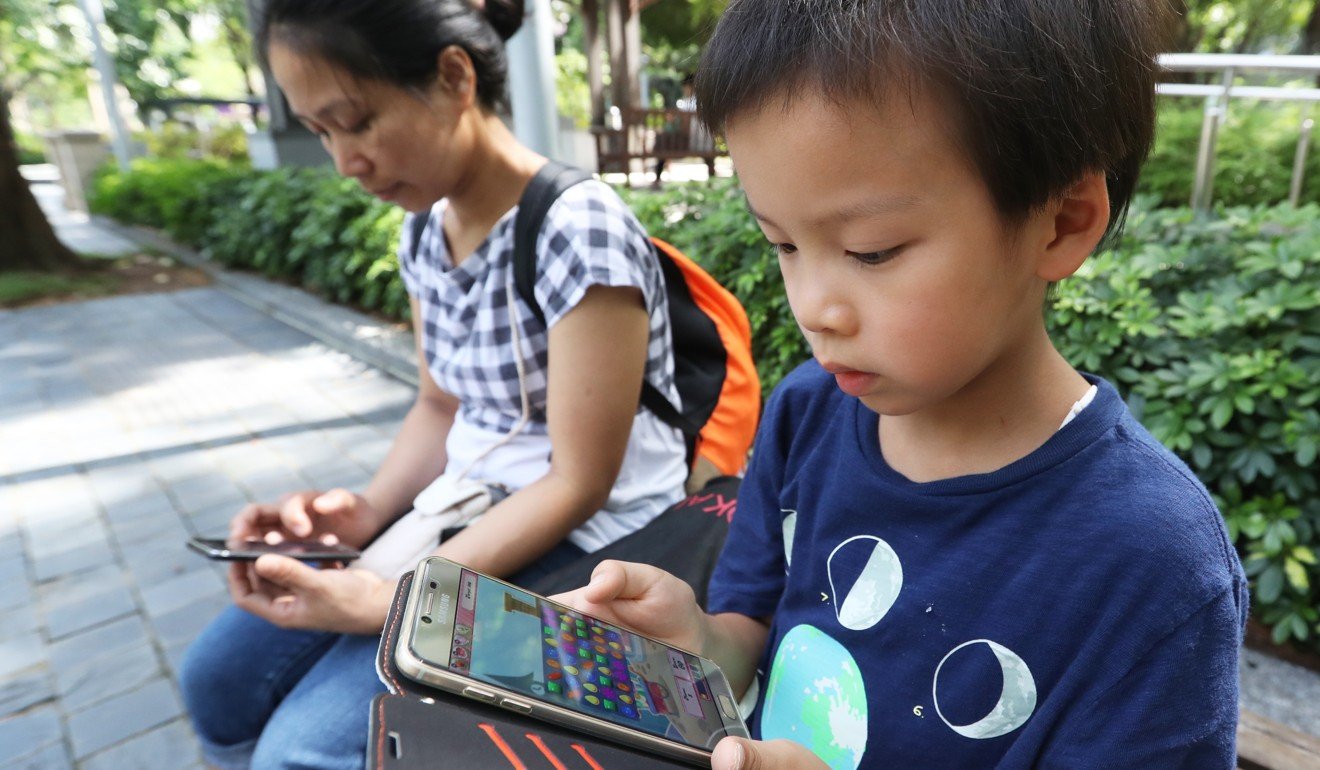
Hong Kong children face health risk from too much screen time, according to new research
For every extra hour spent in front of televisions and digital screens, risk of developing illness increases, researchers at the University of Hong Kong warn
Children in Hong Kong are spending more time in front of screens than their peers in mainland China and the US, exposing them further to the risk of mental and physical health problems as they get older, according to comprehensive new research.
A four-year study by the University of Hong Kong found that the more time children spent watching television and playing games on digital devices, the more likely they were to be overweight and develop behavioural problems when they grew older.
In a separate study that targeted primary school pupils, HKU researchers found that Hong Kong had a higher proportion of children who spent at least two hours of screen time a day compared with youths in the United States and mainland China.
From 2011 to 2015, researchers conducted a longitudinal study of 681 children from when they were five years old in kindergarten until the age of nine in primary school. The study examined their habits of using digital devices and assessed them on their behaviour, psychosocial development and academic performance.

The study showed that for every extra hour a day spent watching television than their peers when they were in kindergarten, the risk of developing behavioural problems increased by 44.4 per cent when they were in primary school.
The risk of hyperactivity and being overweight increased by 34.3 per cent and 19.4 per cent respectively.
Screen time on rise as Hong Kong toddlers given ‘e-pacifiers’ from before age of one
For children who spent an extra hour a day playing games on computers, tablets or other electronic devices, the risk of developing emotional problems when they were older increased by 23.2 per cent, and the risk of hyperactivity increased by 32 per cent.
For each extra hour that children spent on digital devices, they scored 2.8 points and 3.5 points less in Mathematics and Chinese language tests compared with children who did not spend as much time on the devices.
“The more time they spend on electronic devices, the less time they get to spend on outdoor activities, sports and highly interactive activities with friends and parents [that could stimulate their body and brain’s development],” said Patrick Ip Pak-keung, an associate professor in the university’s department of paediatrics and adolescent medicine.
“Using electronic devices for learning should be encouraged, but excessive use can have negative impacts on children’s health and development.”
Ip said that blue light, or short wavelength light, emitted from electronic devices prevents the release of melatonin, a natural hormone that helps regulate sleep.
“We suspect that overuse of digital devices at such a young age will affect the brain’s development, and could lead to long-term risks of developing attention deficit hyperactivity disorder in the future,” he said.

Children, especially those at the age of three to six years, learned to develop brain functions in their frontal lobe such as being attentive, memorisation skills and self-control, Ip said.
In the other study of 7,585 pupils from 51 primary schools conducted in 2016, children between the ages of six and 10 were found to spend an average of four hours a day in their leisure time glued to electronic screens.
At least 74 per cent of children had more than two hours of screen time, which was a much higher rate compared with the 20.8 per cent in the US, and 47.4 per cent in Beijing.
The research team suggested that infants and young children below the age of two should not use digital devices, while parents should supervise those between three and six years old to play recreational and useful games. Primary school pupils should limit screen time for non-learning purposes to less than two hours a day.

